Behringer reveals more modular clones on the way
In what looks like the same series as BRAINS, Behringer reveals three more Eurorack modular clones to add to the party but with no indication of availability.
There’s also no description, just a ropey photo and a cryptic one-liner. But the eagle eyes of the Facebook commentariat spotted the comparisons to existing modules.
Chaos
Chaos is a take on the Mutable Instruments Marbles and a generator of probable outcomes. It creates voltages, either smooth or quantized, and gate patterns that fall down one side of the module or another. You have a number of different outputs for the voltage levels or gates it produces. You can program in scales, loop sections with a certain amount of repeatability, and sample external signals. Or, at least, that’s what you can do with Marbles.
Chaos appears to have all the same controls and features, albeit in a more gauche and lively styling. Mutable Instruments left all the firmware available as Open Source, and so we’re seeing a lot of clones at the moment, which, in the absence of Mutable, is no bad thing.
- Behringer Facebook post.
Surges
Surges is a multi-mode filter and not quite so easy to spot because it’s the worst-looking module I think I’ve ever seen, and I’ve seen some dodgy DIY attempts in my time. However, it is, of course, a take on the Mutable Instrument Ripples Liquid Filter.
Ripples is a great sound filter with self-oscillating resonance, soft-clipping on one of the inputs and a switchable slope. Not sure why they needed to make it look so boring.
- Behringer Facebook post.
Four LFO
Lastly, we have Four LFO, which isn’t based on a Mutable Instruments Open Source firmware; this is based on the Batumi from Xaoc Devices. It’s a four-channel LFO with three waveform outputs, reset and sync inputs and various modes of operation.
One thing that Behringer has done is to bring the assignable options to the front of the module rather than hiding them on the back or in an expander. It’s good to know that some thought went into it.
- Behringer Facebook post.
Imitation or innovation?
I’m sure these modules will be good and cheap whenever they finally arrive. Eurorack modular has always thrived on the copying and developing of different ideas, so I don’t really have a problem with Behringer basing its work on existing modules. However, with a company of such resources and talent, I’m disappointed that they don’t do something interesting of their own. They could dominate the educational market with simple, entry-level modular systems. They could empower some small modular makers to come up with extraordinary ideas that give the modules a unique and desirable place in the modular canon. Otherwise, it’s all a bit boring but at the very least it’s great for people on a budget.
- More from Behringer
10 responses to “Behringer reveals more modular clones on the way”

 3,8 / 5,0 |
3,8 / 5,0 | 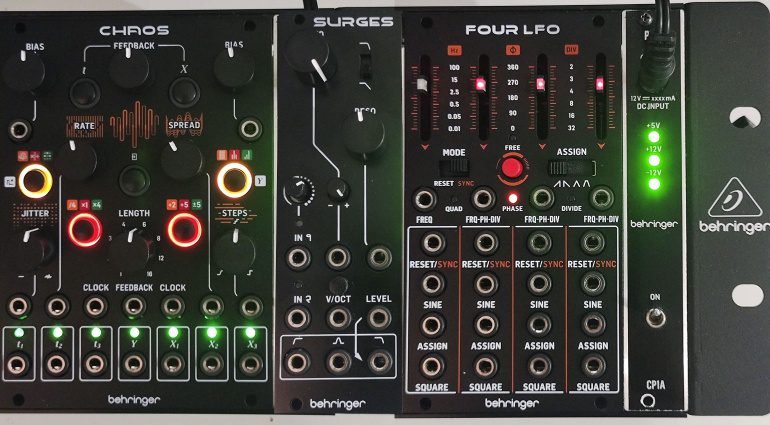
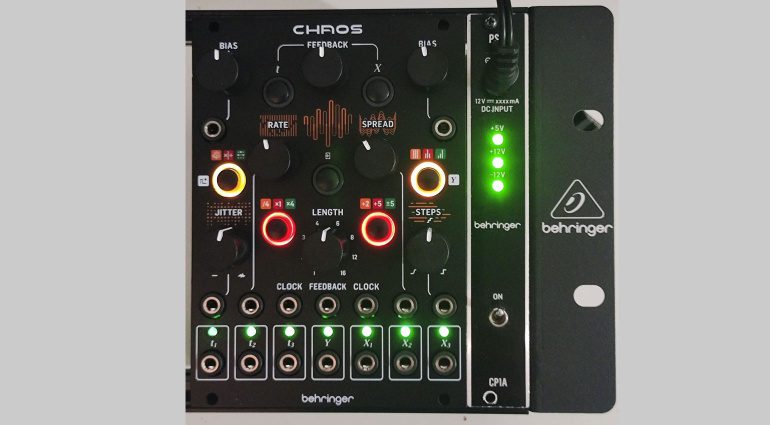
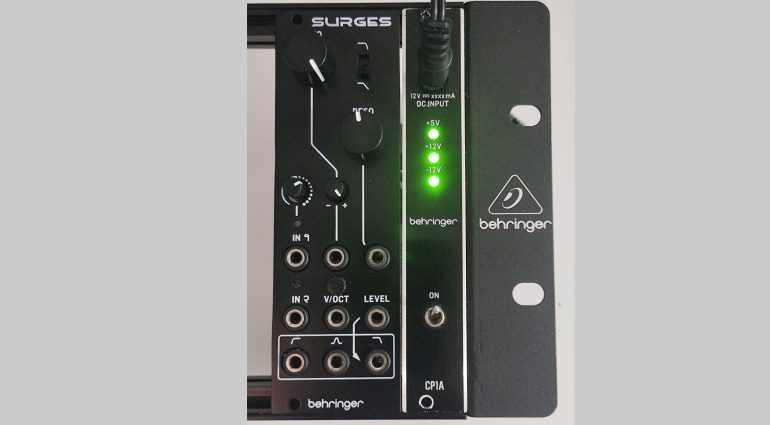
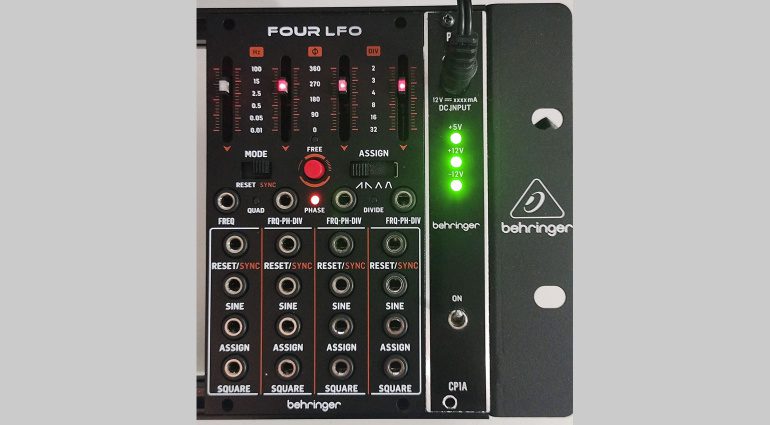




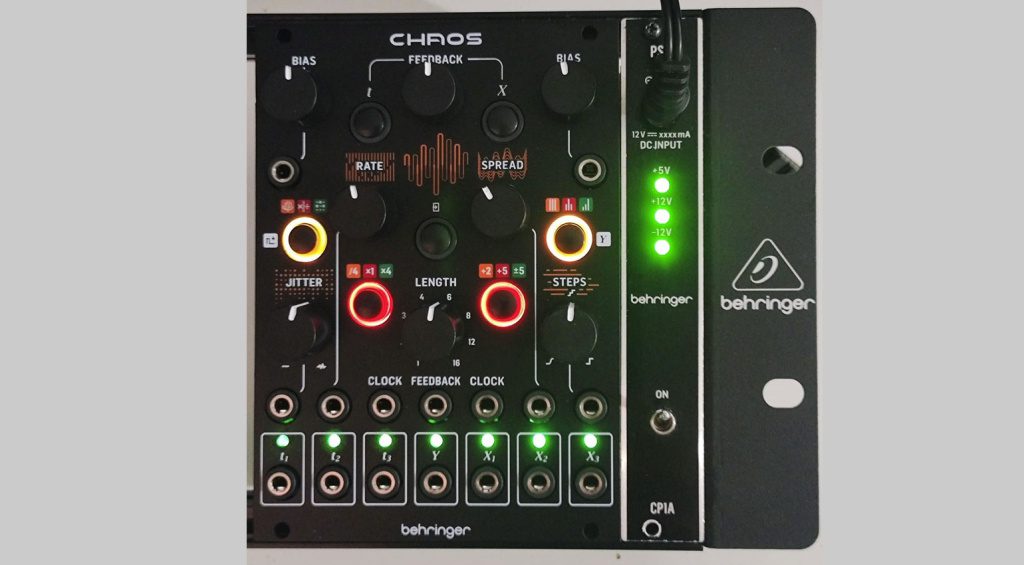
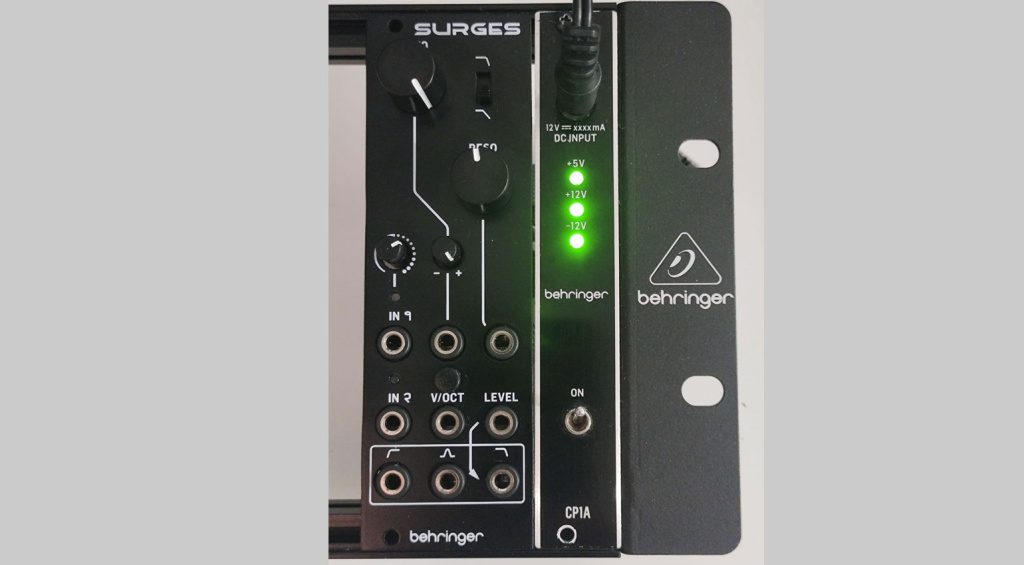
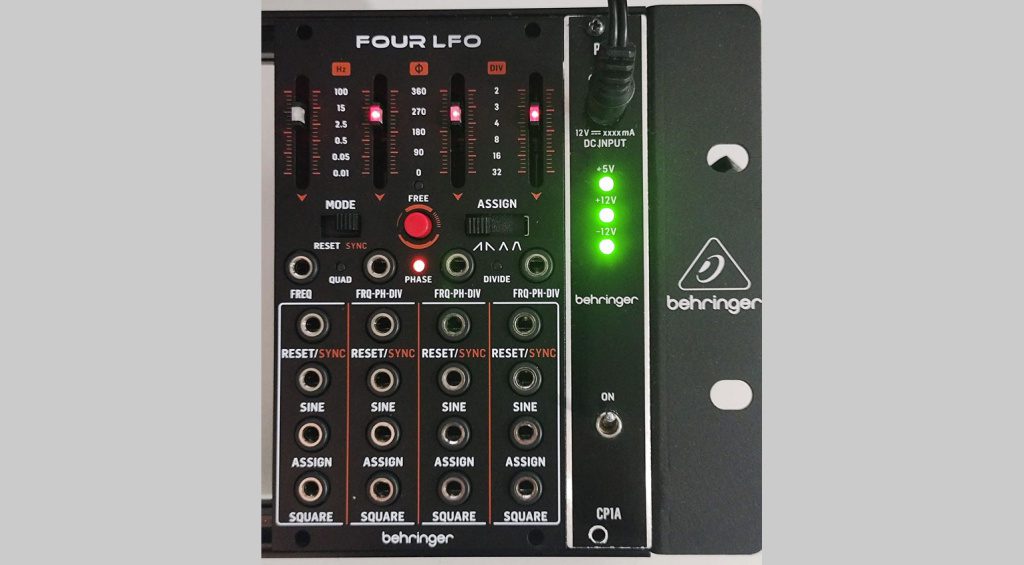
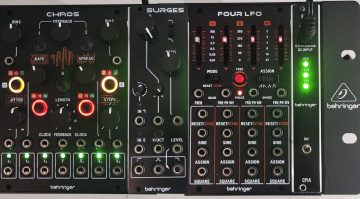

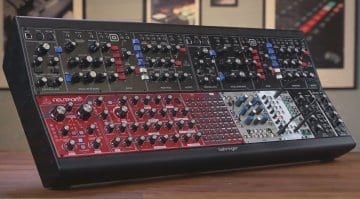
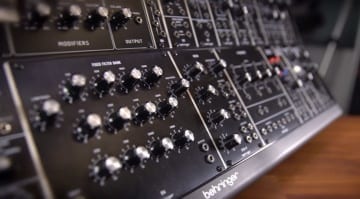
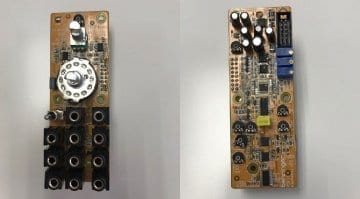
The Batumi knock off is very annoying if I’m being honest as they are a very small operation and are consistently putting out novel modules. The mutable stuff is one thing, the Xaoc stuff is an entirely new low.
The problem with the last project is that it is not „based on” an another module. It just blatantly and unashamedly stolen 1:1 from an active product. There is absolutely no added value, all details, interface, even the front panel symbols are taken with no respect whatsoever to the IP of the original product.
Not true.
The Behringer one has a selectable waveform on the panel face.
With the Xaoc Devices one it’s on the underside I believe. Meaning you’d have to take it out the case to change.
That’s added value right there.
Dongleboob you are incorrect. These waveforms are available on Batumi. Adding Poti brings them to the panel in elegent way, as opposed to the ugly mess in case of this Behringer ripoff.
there are tons of mutable clones that are much more elegant and with less HP count. Behringer always deliver pretty clunky and bland stuff; even when they copy it from someone else. When they’re not well it’s value for your money I guess but there’s always something not right
Why should it be boring to get a clone? This is what Behringer says, it not new to Clone anything based on the existing. Behringer is not alone with this, but for its prices! Thats why many Musicans love Behringer.
It’s interesting how synth purists love to bash Behringer, meanwhile over in the world of guitar gear, no one bats an eye at the amount of gear cloning going on.
I think plenty of people bat eyelids all over the place. There’s been plenty of litigation in the guitar world to demonstrate that. Behringer is particularly special for their scale and audacity and people are entitled to their opinion on whether that’s good or not.
Before you trash Behringer, has it ever crossed your mind that some products can be manufactured under license and the original IP owner can benefit ? Unless you hear of XAOC complain, there’s a business deal behind the scenes.
There is enough complaints from Xaoc to be sure there was no deal, just a blatant ripoff
You are currently viewing a placeholder content from Facebook. To access the actual content, click the button below. Please note that doing so will share data with third-party providers.
More InformationYou are currently viewing a placeholder content from Instagram. To access the actual content, click the button below. Please note that doing so will share data with third-party providers.
More InformationYou are currently viewing a placeholder content from X. To access the actual content, click the button below. Please note that doing so will share data with third-party providers.
More Information